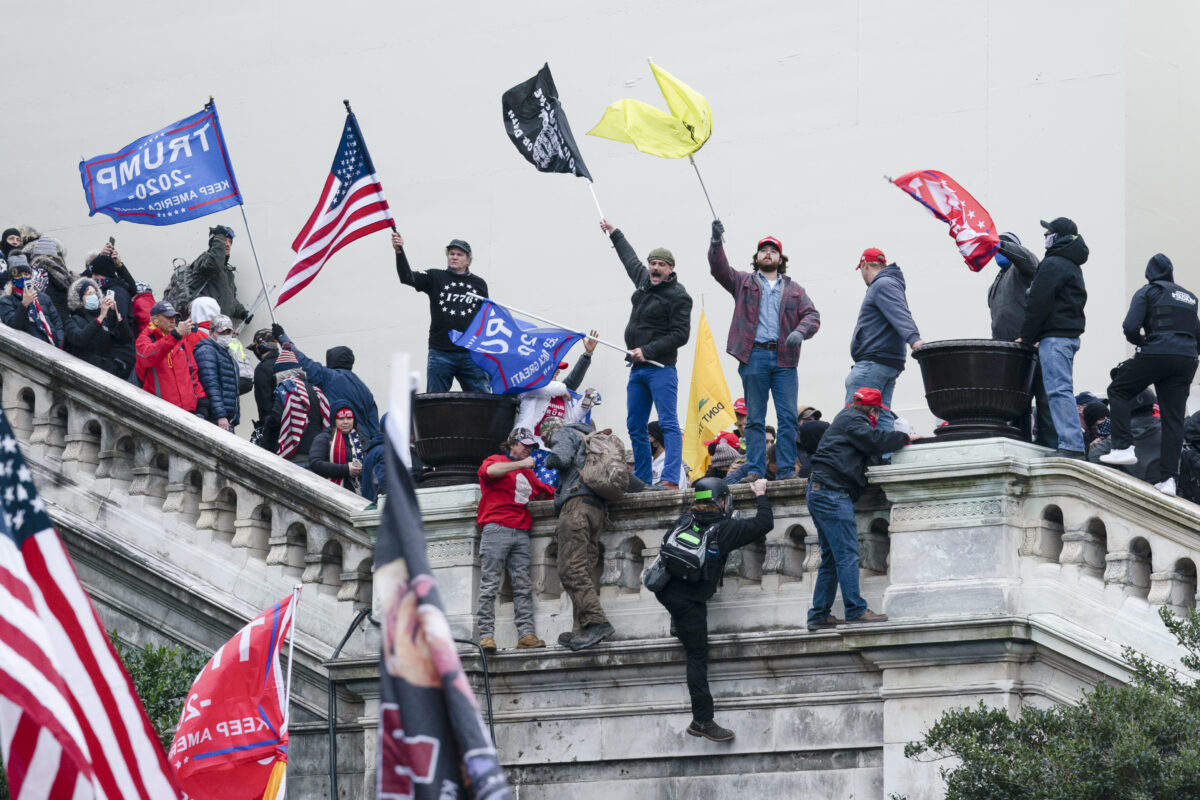Prosecutor Who Jailed Capitol Rioters Warns Trump Pardons Unleashed a Loyal Militia: ‘They Have Never Been More Dangerous’

(AP Photo/Jose Luis Magana, File)
Federal prosecutor Brendan Ballou, who jailed numerous Capitol rioters, issued a chilling claim in The New York Times that the “purpose” of the pardon by President Donald Trump was to unleash a loyalist militia “unaccountable to the government.”
Trump’s sweeping action covered more than 1,500 individuals who were involved but Ballou is primarily concerned with people like far-right Oath Keepers founder Stewart Rhodes and Proud Boys leader Enrique Tarrio, who he warned are “now free to pursue revenge” – adding that they “have already said they want it.”
In the opinion editorial published on Friday, Ballour argued that Trump did not issue the pardon “out of sympathy for the rioters, but because their freedom serves his interests”:
For while some convicted rioters seem genuinely remorseful, and others appear simply ready to put politics behind them, many others are emboldened by the termination of what they see as unjust prosecutions. Freed by the president, they have never been more dangerous.
The pardons, Ballou argues, effectively grant these groups the legitimacy and latitude to act as Trump’s personal enforcers in the same way that authoritarian regimes rely on paramilitary groups to suppress dissent and enforce political will:
The effect — and I believe purpose — of these pardons is to encourage vigilantes and militias loyal to the president, but unaccountable to the government. Illiberal democracies and outright dictatorships often rely on such militia groups, whose organization and seriousness can range widely, from the vigilantes who enforce Iran’s hijab dress code to the United Self-Defense Forces of Colombia that have killed government opponents.
Here in America, lynch mobs and the Ku Klux Klan bolstered a racial caste system with violence that state governments, for the most part, were unwilling to commit themselves. But for decades, we had little reason to fear that vigilantes or militias would enforce the will of the state. That may be changing.
He continued to argue that Trump’s rhetoric has only fueled a sense of purpose for individuals like this, recalling the president’s recent comments that these groups “actually love our country.”
The shift in political attitudes towards the rioters is also something that Ballou flagged as a cause for concern, pointing out that prominent Republicans who once condemned the attack have since reversed course, with figures like Elise Stefanik now calling the rioters “hostages” and others dismissing investigations into the insurrection as a “sham.”
Ballou urged action to counteract the threat, emphasizing the need for state and local authorities to crack down on paramilitary activity before it escalates.
There is great value to him in having members of these groups released, doubly loyal to him, and eager to carry out his agenda and silence his critics through violence.
The prosecutor concluded his article by telling readers to keep the events of January 6 memorialized as a sobering reminder of the potential for future violence.
New: The Mediaite One-Sheet "Newsletter of Newsletters"
Your daily summary and analysis of what the many, many media newsletters are saying and reporting. Subscribe now!






Comments
↓ Scroll down for comments ↓